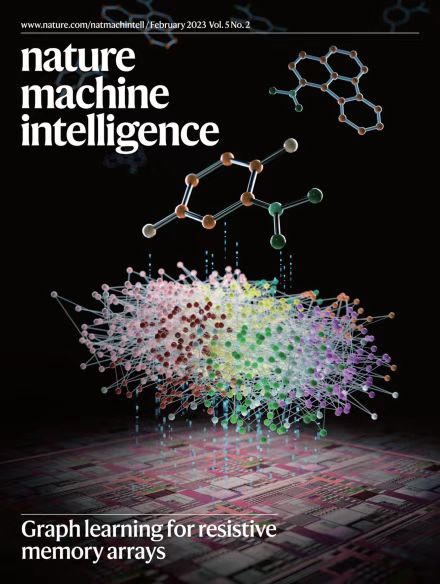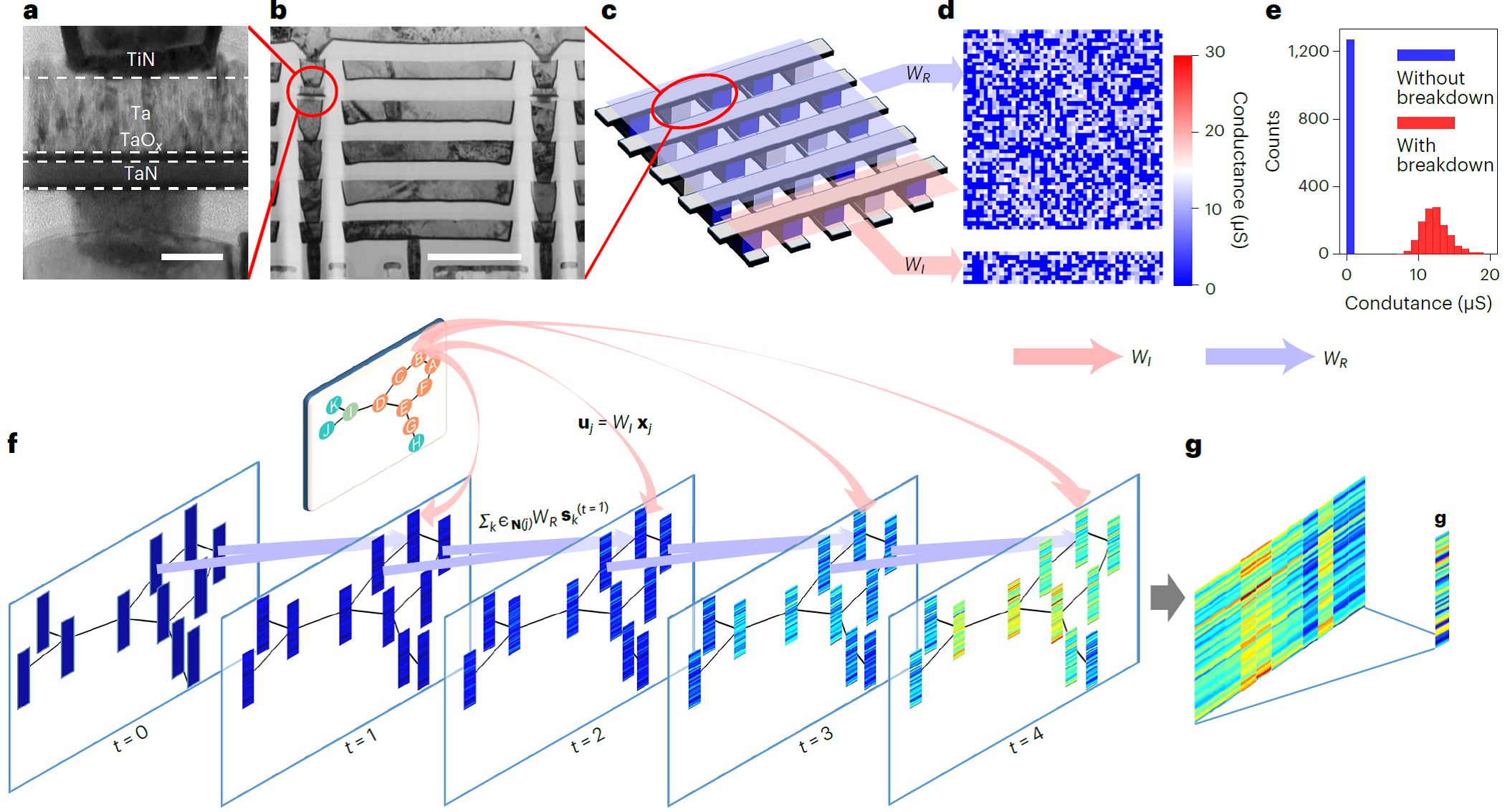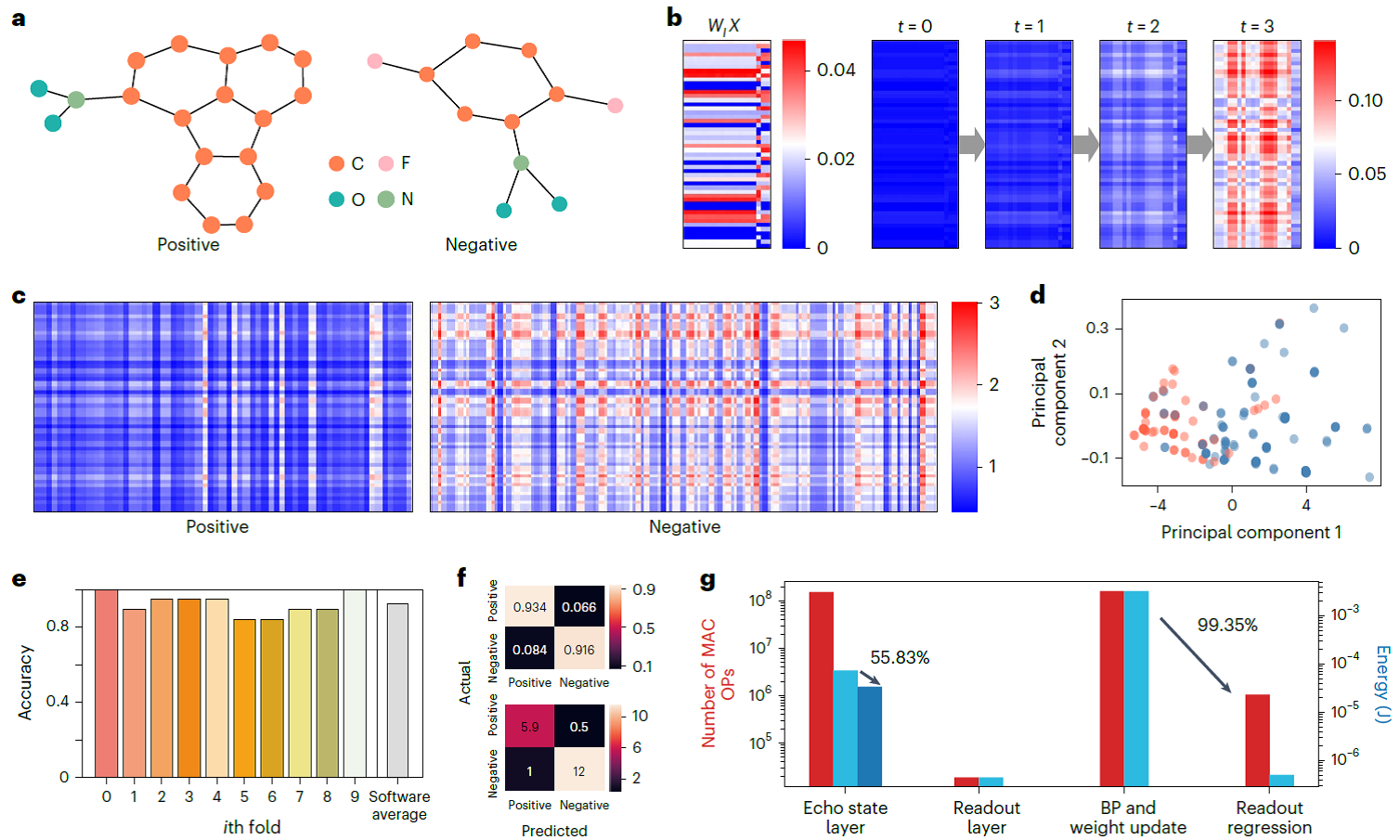|
|
| Marring Resistive Memory with Graph Learning |
 |
Text Size: A A A |
|
Graph Neural Network has been widely used in applications such as social networks, e-commerce, drug predictions, human-computer interaction, etc. Researchers from Institute of Microelectronics of the Chinese Academy of Sciences (IMECAS) and the University of Hong Kong have accelerated the graph learning with random resistive memory (RRM), achieving 40.37X improvements in energy efficiency over a state-of-the-art graphics processing unit on the representative graph learning tasks.
This study was published in Nature Machine Intelligence as cover story on Feb. 13, 2023.
Deep learning with graphs on traditional von Neumann computers leads to frequent data shuttling, inevitably incurring large time and energy overheads. In-memory computing with resistive memory may provide a novel solution.
The researchers present a novel hardware-software co-design, the RRM-based echo state graph neural network, to address those challenges. The RRM not only harness low-cost, nanoscale and stackable resistors for highly efficient in-memory computing, but also leverage the intrinsic stochasticity of dielectric breakdown to implement random projections in hardware for an echo state network that effectively minimizes the training cost. The work is highly significant for developing next-generation AI hardware systems.
Article link: https://www.nature.com/articles/s42256-023-00609-5
Echo state graph neural networks with analogue random resistive memory arrays
S. Wang, Y. Li, D. Wang, W. Zhang, X. Chen, D. Dong, S. Wang, X. Zhang, P. Lin, C. Gallicchio, X. Xu, Q. Liu, K. Chen, Z. Wang*, D. S. Shang*, M. Liu
Nature Machine Intelligence (2023) DOI: 10.1038/s42256-023-00609-5
 
Fig. 1 The Soft-Hard Co-Design of the Learning Process for Echo State Graph Neural Network Based on Random Resistance Array. (Figure is reprinted from Nat. Mach. Intell. DOI: 10.1038/s42256-023-00609-5) 
Fig. 2 Implementing Molecular Graph Classification on the MUTAG dataset using ESGNN. (Figure is reprinted from Nat. Mach. Intell. DOI: 10.1038/s42256-023-00609-5) Contact: SHANG Dashan Institute of Microelectronics of The Chinese Academy of Sciences Tel: +86-10-82995923 E-mail: shangdashan@ime.ac.cn Web: http://english.nigpas.cas.cn |
|













